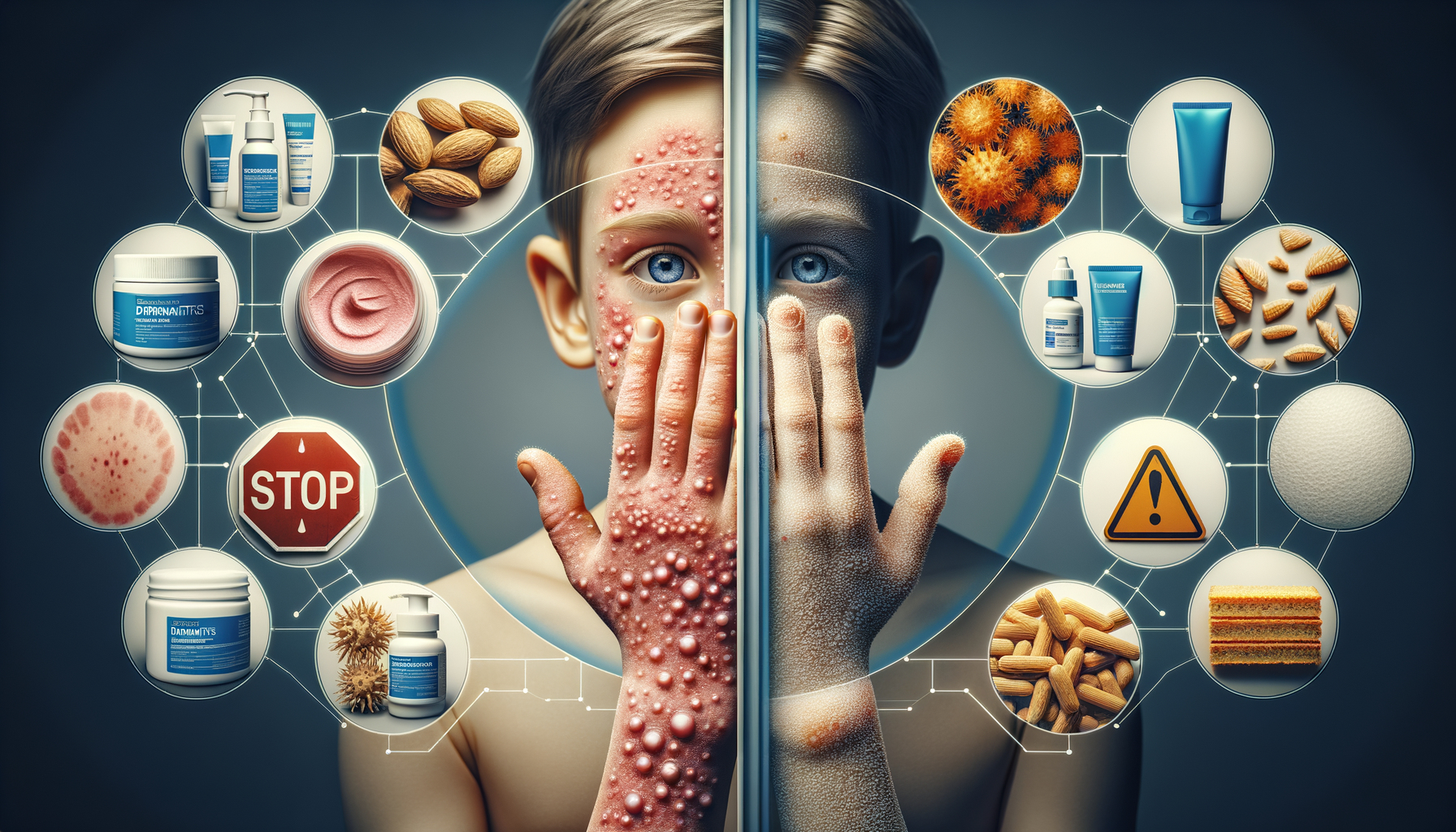How to Manage Eczema and Dermatitis Flare-Ups with Simple Lifestyle Changes
Dermatitis and eczema can cause intense discomfort and irritation, but there are many ways to manage flare-ups and keep your skin healthy. In this article, we’ll explore the most common triggers for dermatitis, natural remedies, and tips for avoiding flare-ups. Plus, we’ll suggest highly regarded skincare products for sensitive skin, helping you to potentially reduce irritation and maintain smoother, healthier skin.

Understanding the Causes of Dermatitis Flare-Ups
Dermatitis flare-ups can be triggered by a variety of factors, and understanding these can help in managing the condition. Common triggers include environmental factors such as extreme weather conditions, allergens like pollen or pet dander, and irritants such as soaps and detergents. Stress and hormonal changes can also exacerbate symptoms, making it essential to maintain a balanced lifestyle.
Another significant factor is the immune system’s response to perceived threats. In individuals with dermatitis, the immune system overreacts to certain stimuli, leading to inflammation and irritation. This reaction can be heightened by genetic predispositions, where a family history of dermatitis or eczema increases susceptibility.
Managing these triggers requires a proactive approach. Keeping a diary to track flare-ups and potential causes can be beneficial. Identifying patterns can help in avoiding known triggers. Additionally, maintaining a regular skincare routine with products suitable for sensitive skin can reduce the frequency and severity of flare-ups.
Ultimately, understanding the nuances of what causes dermatitis flare-ups allows for better management and improved quality of life for those affected.
Can Dermatitis Be Cured with Creams?
While there is no definitive cure for dermatitis, creams and topical treatments can play a crucial role in managing symptoms. These products often contain ingredients that help to soothe irritation, reduce inflammation, and repair the skin barrier. Emollients are particularly effective in keeping the skin moisturized, which is essential in preventing flare-ups.
Topical corticosteroids are commonly prescribed for more severe cases, as they help to reduce inflammation quickly. However, it is important to use these under medical supervision to avoid potential side effects from prolonged use. Non-steroidal creams, which include calcineurin inhibitors, offer an alternative for those who wish to avoid steroids.
In addition to medical treatments, natural remedies can complement the use of creams. Oatmeal baths, for example, can soothe itchy skin, while coconut oil provides a natural barrier to lock in moisture. Despite these options, it is crucial to consult with a dermatologist to tailor a treatment plan that suits individual needs.
Overall, while creams cannot cure dermatitis, they are vital in managing symptoms and improving skin health.
Is Dermatitis Contagious to Others?
Dermatitis is not contagious and cannot be spread from person to person. This skin condition is primarily caused by genetic and environmental factors rather than infectious agents. Understanding this can help reduce the stigma and misconceptions surrounding dermatitis.
Despite its non-contagious nature, dermatitis can still cause significant discomfort and affect quality of life. It is essential for those affected to educate themselves and others about the condition to foster empathy and support. Sharing accurate information can help dispel myths and encourage a more understanding approach to managing the condition.
For individuals with dermatitis, maintaining a healthy skin barrier is crucial. This involves regular moisturizing and avoiding known irritants. By managing the condition effectively, those affected can lead a comfortable life without the unnecessary burden of societal misconceptions.
In conclusion, while dermatitis can be challenging to manage, it is important to remember that it poses no risk to others and should not be a source of isolation or stigma.